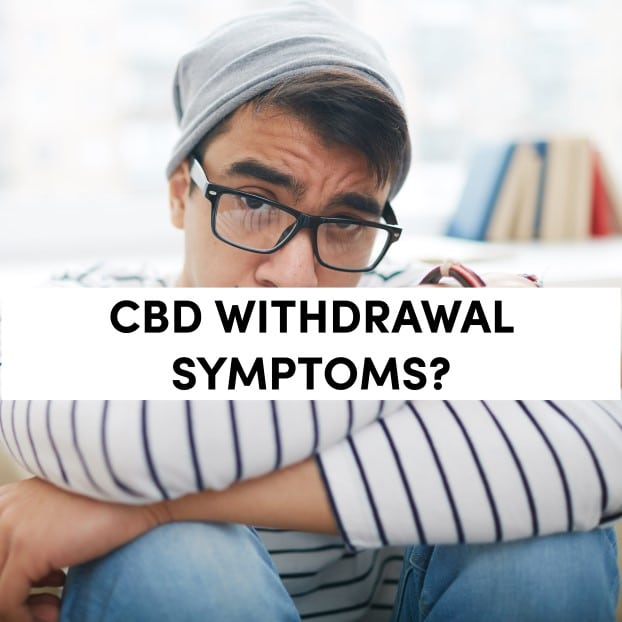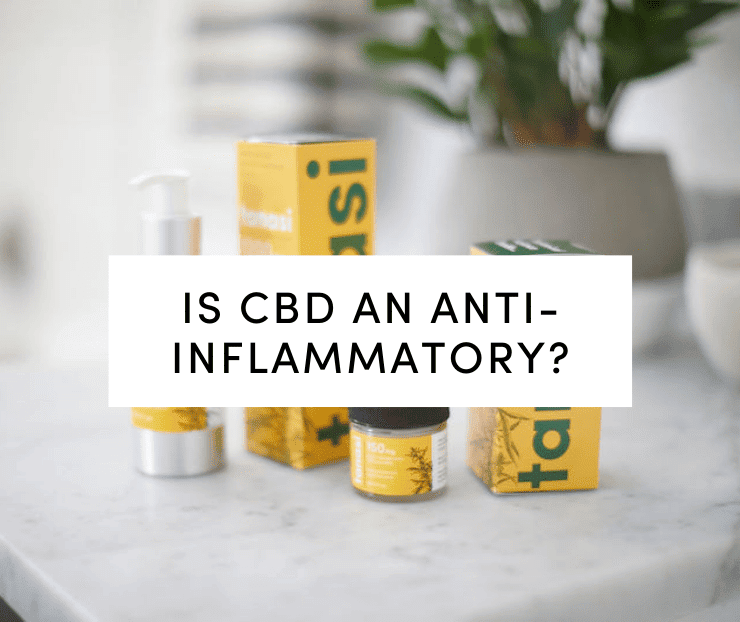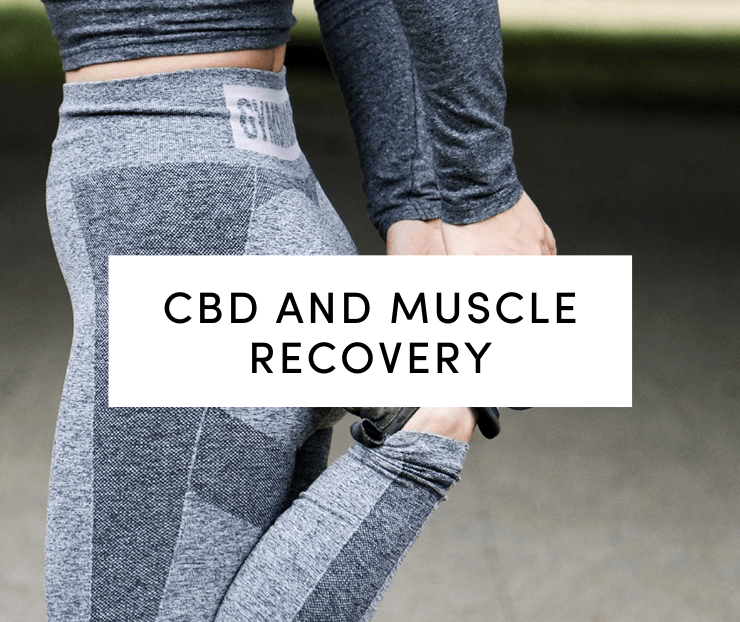Are There CBD Withdrawal Symptoms? Not Exactly!

Posted on April 23rd, 2021
Cannabinoids are a class of lipophilic molecules that often work with the body’s endocannabinoid system (ECS). If you are familiar with cannabis, you already know that it’s due to cannabinoids that the plant has such potential for beneficial effects.
In this article, we will explore what CBD is, its use, addiction in general, and particularly if CBD withdrawal symptoms are actually a thing. Read on.
What Is CBD?
In general, CBD is a substance extracted from the hemp plant. In the past few years, CBD suddenly became the trendiest cannabinoid.
The cannabis Sativa plant has lots of chemical compounds within it; CBD is simply the second most abundant of them. Delta-9-tetrahydrocannabinol, or THC, is the most abundant and also the most popular due to our society’s love of its psychoactive effect. THC is the reason the marijuana pant became incredibly popular in the first place; its therapeutic effects were a distant second. The main difference between CBD and THC is that the former is not psychoactive; it cannot get you high, yet, it still has therapeutic effects.
Manufacturers extract CBD from hemp and, unlike THC, is a legal substance thanks to the 2018 farm bill. In the US, the hemp must not exceed 0.3% of THC content. Marijuana, a different variety of cannabis Sativa, has much more than just 0.3% THC, and for that, it’s still illegal in some parts of the US.
What Are CBD’s Effects?
CBD’s non-psychoactive properties make it an excellent option for potential therapeutic use. Apart from treating certain rare childhood epilepsy forms, CBD may also be beneficial for people with:
- Depression
- Stress
- Anxiety
- Pain sensation
- Inflammation
There’s no shortage of research to support these claims either, although many have only been tested in animals only, or are in their early stages.
For example, a particular study associates CBD with a decrease in heart complications, such as strokes and heart attacks. Another different study discovered that a dose of the compound decreased the nauseating sensation from chemotherapy. Many researchers hint that CBD might manage PTSD-related symptoms somewhat as well.
CBD also plays a vital role when easing pain. Since CBD triggers the TRPV1 receptors, it effectively inhibits pain signals from targeting the rest of the body. Generally, the inference offers a measure of relief from discomfort, swelling, and aches.
Where Does CBD Come From?
It a compound manufacturer extract from the cannabis plant’s flower. Concerns over CBD usually stem from the confusion between marijuana, hemp, and cannabis. Although marijuana and hemp are both cannabis species, marijuana contains high THC levels. Remember, THC is the substance responsible for getting you high. As previously stated, CBD comes from hemp, which has less than 0.3% THC. This level is negligible and can’t cause a “high.”
Most manufacturers choose to extract it from hemp as it makes sense businesswise. If they were to extract it from marijuana, it would come with high levels of THC that would require further processing to lower. Because of the legal status of cannabis in the US, you won’t legally get CBD products exceeding the above-mentioned THC level.
Is Hemp the Same as Marijuana?
This is a frequent question. Taxonomically speaking, hemp and marijuana belong to the same family of plants. They’re just different names for the same genus & species.
The actual distinction is that hemp plants don’t exceed 0.3% (by dry weight) of THC. In comparison, marijuana generally comprises 5-20% THC. That means that you won’t get high on hemp. In simpler terms, cannabis plants with not more than 0.3% THC are hemp, while cannabis plants that exceed this limit will be marijuana as far as the law concerns.
Will CBD Make You High?
No. CBD won’t make you high or induce any psychoactive side effects. So, why won’t it get you high?
Although obtained from plants that form the cannabis Sativa family, CBD is just one of numerous cannabinoids found in the family.
The two compounds, THC and CBD, share numerous similarities since they both work with your ECS. This network of receptors located in the human body helps regulate vital bodily functions. Since THC and CBD are chemically the same as the endocannabinoids located in the human body, they work with the CB1 & CB2 receptors of the ECS. Said receptors relay messages between different cells to manage stress, immune functioning, and pain response.
Nonetheless, although similar, these two compounds are more different than most assume and vary dramatically in their effect.
Substance Addiction: What Is It?
Drug addiction (or substance use disorder) is basically a disease that influences a person’s brain and behavior. It results in an inability to control the consumption of a legal or illegal medication or drug. Substances such as nicotine, marijuana, and alcohol we consider drugs. When addicted, you might continue taking the drug regardless of the harm it might bring you.
Drug addiction might begin with the experimental use of a particular recreational drug in a social environment. For certain, people acquire a taste for the effects the drug elicits and begin to consume it more frequently to derive more often from it. When it comes to opioids, drug addiction often starts with prolonged exposure to prescribed medications. Opioid addiction, like drug addiction, might cause severe changes to your health and mental condition. They are not something you should abuse.
The addiction risk and how fast you become addicted differs by drug. Certain drugs, like opioid painkillers, possess a higher risk and bring addiction faster.
What Is Withdrawal?
Some people use the terms “detox” and “detoxification” to mean withdrawal. But what exactly is it? This is when you cut back, or cut out, on taking alcohol or certain drugs. You might have developed a physiological or physical dependency on a drug. Symptoms encountered during withdrawal might be mild or severe, based on:
- – Which specific drug(s).
- – How long you have been taking it.
- – Physical health.
- – Age.
- – Method of withdrawal.
- – Psychological properties.
What Is Substance Tolerance?
Tolerance usually occurs when someone takes a particular substance repeatedly over time. Their system ends up adjusting to the availability of a certain substance level. Thus, the brain and body parts affected by that substance become accustomed to its presence. As these affected parts adjust, the user will gradually require more of the substance to cause the same effects a relatively smaller dose elicited when they first started taking it. This is the phenomenon of ‘tolerance.’
For instance, someone repeatedly using a substance to feel its effects of a euphoric “high” caused by a drug will develop tolerance. After that, they will require to consume increasingly higher dosages of the substance to get the same effect. It can have a wide range of ramifications, where the substance user will need to acquire and take large quantities of their preferred drug. This will likely have potentially disastrous consequences for their finances, health, and overall life quality.
You might be wondering if it is possible for this to happen to you when taking CBD? Are there CBD withdrawal symptoms? Read on.
Why Do We Get Addicted to Certain Substances?
Both environmental and genetic variables play a role in the initial consumption of addictive agents and the overall transition to addiction. On a genetic level, addictions generally range from moderate to highly heritable as well. Adoption, family, and twin studies show that a person’s risk seems to be proportional to the degree of an addicted relative’s genetic closeness. The moderate to high heritability when it comes to addictive disorders are paradoxical. Addictions initially rely on the presence of an addictive agent and the person’s choice to consume it.
Simply put, addiction might be genetic, but what influences it more it’s the specific environment in which you grew in. If alcohol and drugs were not readily accessible in that environment, you would be less likely to start using the substances.
Is CBD Addictive in Any Way? Are There CBD Withdrawal Symptoms?
This is what you’ve been waiting for… Well, the short answer is NO!
Addictive substances activate the release of dopamine in the brain’s pleasure centers. Eventually, the body becomes heavily dependent on that substance, causing withdrawal symptoms when that person stops using it. Since CBD doesn’t create an excessive release of dopamine, it won’t get you high. There’s no “euphoria” available, which is the common link between other opioids and nicotine.
Since CBD isn’t addictive, when you stop taking it, there are no CBD withdrawal symptoms. On the other hand, CBD rather focuses on balancing the levels of neurotransmitters in the brain. So, if there’s too much of a neurotransmitter, CBD can help to reduce it. Thus, CBD can help to bring it to a balanced level when there isn’t enough of another, which brings us to…
CBD For Withdrawal of Other Substances
Have you ever wondered how CBD oil allows recovering addicts to manage the psychosis induced by substance withdrawal? Well, early research hints that CBD might help patients deal with the stress and anxiety related to substance withdrawal. By relieving anxiety and stress caused by drug withdrawal, it might be possible to prevent the psychotic episodes or bring them down to a manageable level.
CBD Withdrawal Symptoms – The Takeaway
Despite the strong evidence supporting the advantages of CBD for drug addicts, we still require more research. Over the last decade, legality issues limited global research into CBD. It is only now that scientists can study all the possible applications of CBD.
Expect a renewed push for an improved understanding of CBD’s effects on drug withdrawal symptoms very soon!






